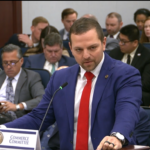The House Financial Service Committee has come up with a proposal to renew the federal terrorism insurance act for two years that some industry groups see as “workable” and “positive.”
The bill, spearheaded by Rep. Mike Oxley (R-Ohio) and Rep. Richard Baker (R-La.), will be marked up by the committee in mid-November and most likely heard after Congress returns from Thanksgiving recess.
The insurance industry, joined by real estate and other business groups, has been pressing for renewal of the Terrorism Risk Insurance Act, before it expires on Dec. 31, 2005.
The extension proposal creates so-called “silos” for major coverage areas of workers’ compensation, property, casualty and NBCR (coverage for nuclear, biological, chemical and radiological attacks), with each silo being assigned its own deductible. The measure excludes commercial auto, which is now covered under TRIA, while proposing to add group life. Insurers would be required to offer NBCR coverage.
Federal intervention would be triggered only if losses exceed $50 million in 2006 and $100 million in 2007.
In the new plan, the distinction between foreign and purely domestic acts of terrorism would be removed so that domestic terrorism would be covered.
The co-share paid by insurers, which is now at 10 percent for all triggered events, would increase for smaller events and decrease for so-called mega events, with a 20 percent co-share for the first $10 billion down to 5 percent for events more than $40 billion.
Insurers would pay back any federal monies through policyholder premium surcharges that would be capped at 3 percent.
The deductibles for each TRIA coverage would rise as follows for 2006 and 2007: Workers’ comp–17.5 percent plus 2.5 percent/year; Property–20 percent plus 2.5 percent/year; Group Life–20 percent plus 2.5 percent/year (to be added during mark-up); Casualty–25 percent plus 5 percent/year; NBCR–7.5 percent plus .75 percent/year.
The proposal also includes various provisions to encourage private insurance for terrorism risks and more private capital dedicated to the market. It also recommends reforms to streamline the approval of private market multi-state terrorism policies and provide easier access to surplus lines for large commercial policyholders.
It also calls for a commission to develop a long-term pooling mechanism to further reduce the government’s role. Only if the commission comes up with a report would TRIA would be extended past 2007.
David Winston, senior vice president for federal affairs for the National Association of Mutual Insurance Companies, said early feedback from his members companies has been positive, although there are some concerns. “This is a workable proposal,” he said.
Brendan Reilly, director of federal government relations at the Independent Insurance Agents and Brokers of America, said reception of the proposal at first glance has been very positive.
“Chairman Oxley and Chairman Baker should be commended for crafting a proposal that addresses everyone’s needs,” he said.
Topics Catastrophe Natural Disasters
Was this article valuable?
Here are more articles you may enjoy.


 State Farm Inked $1.5B Underwriting Profit for 2025 but HO Loss Persists
State Farm Inked $1.5B Underwriting Profit for 2025 but HO Loss Persists  Sompo Holdings Completes Acquisition of Aspen, Taking it Private
Sompo Holdings Completes Acquisition of Aspen, Taking it Private  Marsh Awarded Injunction Against Former Employees Now With Howden US
Marsh Awarded Injunction Against Former Employees Now With Howden US  Florida OIR Slams Committee-Approved Clearinghouse Bill Changes as ‘Illusory’
Florida OIR Slams Committee-Approved Clearinghouse Bill Changes as ‘Illusory’ 


